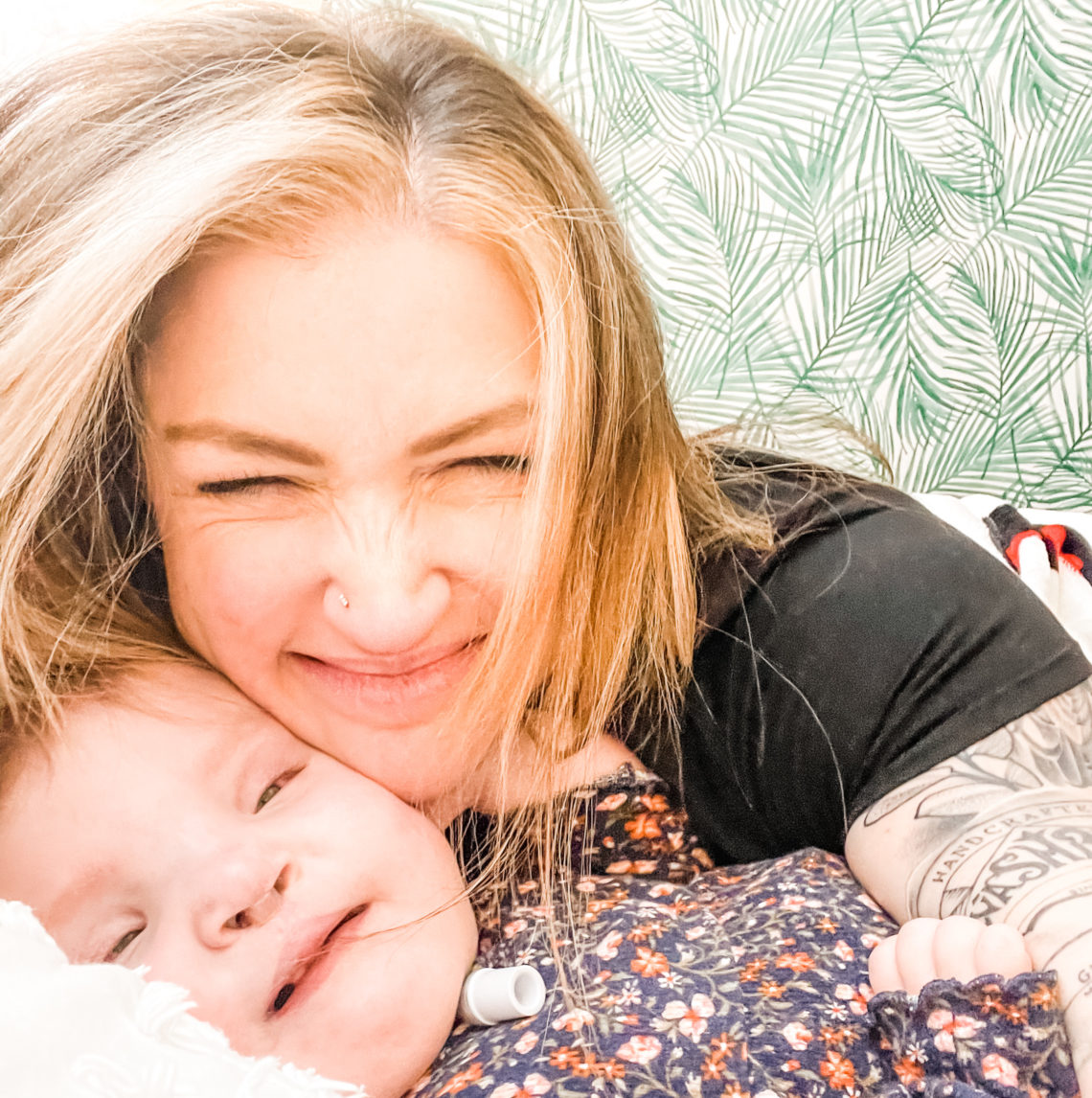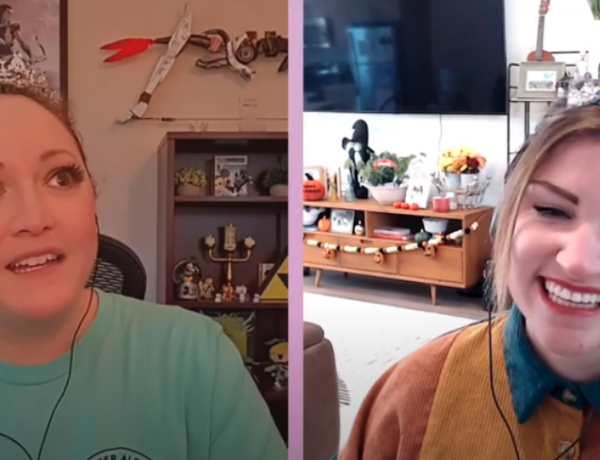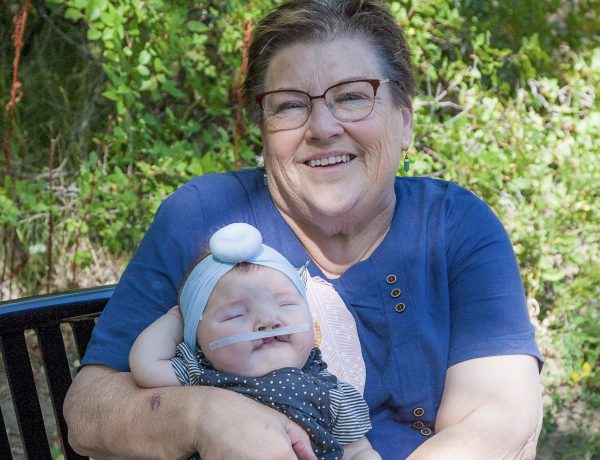“I can’t imagine.”
“You and your daughter are so sweet and precious.”
“I hope you find peace.”
“You are so strong.”
“You’re an inspiration. Sloan is an inspiration.”
During the month of June, my mail was overwhelmed with things like sunshine boxes. Or cards with the word “condolences.” We had lots of casseroles, groceries, and treats on our doorstep every day. And beautiful flower deliveries: flowers that slowly wilted and died, symbolic of the sudden shifts in my life.
People reached out with supportive resources of all kinds: many of these resources I still use to this day.
I’m so grateful. Always will be.
The action and support was (and is) real. I feel so lucky to have experienced love in ways I didn’t even know I needed. And from those well-intended sunshine boxes to the things we all say, like “I can’t imagine”, I knew people saw and understood my hurt.
I would be a part of my dead fam club today if it weren’t for all that love, support, and Sloan pushing me to my next breath.
…Then, one day, I realized while I was loved by so many: I lost my voice in light of tragedy.
I felt like I had become a cause, someone viewed as made of glass and meant to serve as inspiration for others. Whether viewing me as inspiration porn was intentional or not, it was always there in an unspoken way. As so many beautiful people stepped out of the woodwork to support me, Sloan, my family, Aaron, and my mom in different ways: I suddenly realized I felt indebted to this long list of people. And these people – like everyone in life – had varying political affiliations, religious affiliations, or views on disability, mental illness, and suicide.
These issues, especially in today’s social climate, can be extremely divisive things to talk about. Even when your goal is empathy, education, and growth: George Soros still gets pulled into the conversation somehow.
But I felt compelled to talk about the tricky stuff after my real-life, heavy, perspective-shifting experiences.
I started expressing my discontent for an extremely divisive president who mocks disabled adults and shared the complexities of mental illness, family, and believing the abused after my dear 30-year-old husband killed himself in a state of psychosis thinking he was the perpetrator of past abuse.
All-in-all, taking pictures of a smiley Sloan paired with some cute emojis is much easier than talking about the dark, heavy, controversial stuff.
As I realized my voice had been lost in the shuffle of tragedy, I suddenly became uncomfortable being me again.
If you know anything about me in real life, I’m not a quiet person: usually to a point I get eye rolls and people want me to CTFO. People probably wouldn’t peg me as sweet, humble, or gentle. I pride myself on growth, empathy, and having informed, strong opinions on things. My loud-natured-ness is both good and bad. I know I’ve faced experiences many won’t ever face. And these experiences are heavy, dark, politically-charged social issues. They are religious issues. And all of these topics can be uncomfortable. So I feared speaking up: worried about offending those that deeply supported me in my “the Kari and Sloan cause” moments.
Then, one day, as I sat across from my now-best-friend-knows-TMI-therapist, she simply said to me “Kari. You’re human. Not a cause. You need to speak up again. You can have opinions.”
And it hit me. I had been living as a cause. I wanted to express endless gratitude and make everyone else comfortable. Even at the risk of losing myself, or what could be my new life’s purpose, in the process.
I’ve always spoken up about uneasy issues. I’ve always faced things like politics and religion head-on: aiming to grow and learn all I can. I love knowledge and poking holes in deeply held beliefs: something Aaron and my mom truly instilled in me. Aaron and I would take drives for hours, debating life’s heaviest topics, and we loved it. We’d end up rolling in laughter at the end because the debate would get so heated. I miss those debates and long, existential conversations.
So after that initial visceral shock of loss and death, I realized I wanted to continue being me. But “being me” now meant advocating for Sloan, advocating for Aaron, and continuing my mom’s legacy of empathy, sticking up for the underdog, and sitting in the really uncomfortable stuff with people.
While my life changed in tragic, unbelievable ways: I was and am still Kari.
As I found my voice again and started to speak up, I realized a shift in the (unsolicited) feedback I received. They went from “You’re an inspiration.” to “I don’t like you.” (<– Said in the best Michael Scott tone.) I realized people wanted to see sweet, cute, comfortable Sloan: or content about a sweet widowed mom to a disabled child. Discomfort came out to play when I spoke of Aaron’s illness and death with the same empathy and support I speak about Sloan’s disability.
Discomfort came out to play when Kari was back and loud again.
I received messages like “Too bad you don’t like our president. Just focus on Sloan.” or “Your husband had control of his mental health and could’ve sought treatment. Your daughter is cute though.”
I’ve made the conscious decision to share our story publicly: all with the hope of connecting with others who find themselves in lonely, dark, isolating places. And that has already happened: which – again – gives me purpose to continue forward to tomorrow. With this public-facing platform, unsolicited feedback and judgment comes with the territory. But so does connecting with others in their loneliest, darkest, heavily-judged moments.
I’ll take unsolicited feedback and judgment if it comes with real, deep, uncomfy human connection any day.
So I share my experience of “becoming a cause” because I think it’s important to remember that life can hit all of us hard and we all need that support and love like I received for so long. But as life continues forward, we’re still us. I’m still Kari – always have been, always will be.
Yes I swap my daughter’s airway every day, yes I found my husband dead in our basement, and yes I watched as my mom’s body rode away in a minivan-hearse.
I also still watch Real Housewives, listen to NPR, love tackling politics and religion, and sit at my computer anticipating the latest Dressed in LaLa drop at 10 AM every Friday morning.
I know if I continue to play an image-driven, Keeping up with the Joneses, peacekeeper the rest of my life I just won’t find meaning in that. I won’t feel fulfilled. And my life really needs meaning and fulfillment now. I can’t make the impact I need to make for Sloan, Aaron, and my mom by staying silent.
Most of all: I won’t be true to who I am. And who I am is not for everyone.
The world views tragedy as a threat to perceived normalcy and comfort. We all rally to support the sad, lonely, unkempt, and distraught: and rallying in support is a wonderful, beautiful side of humanity that should be celebrated no matter where you sit politically, religiously, or socially.
If you have donated or supported a human in their cause-worthy moments, know that this support and love means everything to that person. This kind of support can go beyond any affiliation with politics, religion, etc. It’s simply humanity showing up for one another.
But remember this person is still a human with thoughts, opinions, and beliefs.
And if you become a cause for others, know you can easily lose your voice. You can start to devalue your perspective. If you find yourself navigating tragedy, feeling like an inauthentic cause for awhile: that’s okay. Allow yourself grace to simply survive.
But know that someday it will be okay to speak up again. Know that you are more than a cause.
Your tragedies, pain, and shitty life stuff that happened at you for no reason gives you a perspective that others can learn from. The world needs your voice: even at its shakiest.
So speak up when you’re ready. And don’t let anyone tell you to just smile in the process.
<3 – Kari



